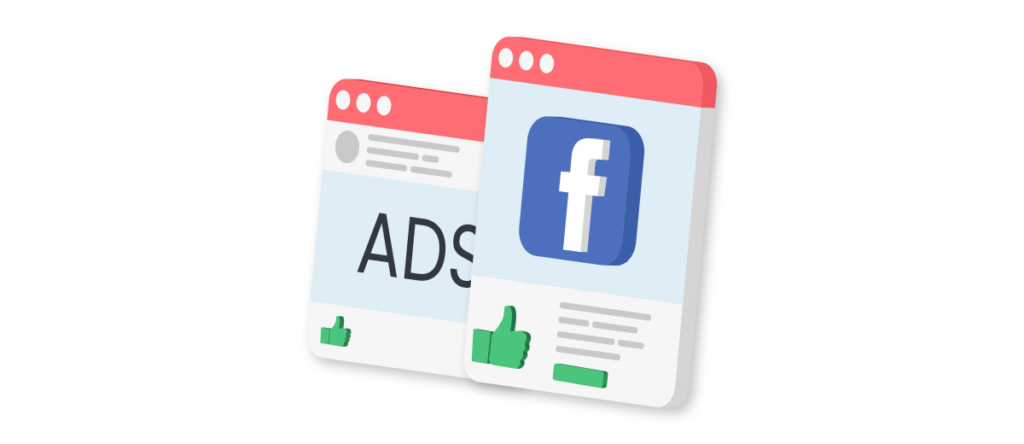Facebook Ads is an attractive avenue for revenue generation, allowing the promotion of third-party products for commission earnings. This article guides you on how to get started earning money from Facebook affiliate marketing.
What is Facebook Affiliate Marketing?
Facebook affiliate marketing involves leveraging the immense user base and engagement potential of Facebook for promoting driving traffic to affiliate products or services, both on Facebook itself (such as Facebook Pages or Facebook Groups) and external websites.
Affiliate marketing on Facebook taps into the platform’s 2.7 billion active users and offers various avenues for engaging with a target audience. These avenues include creating dedicated Facebook Pages or Groups, using organic strategies to attract and engage viewers, leveraging existing Facebook communities, and utilizing Facebook Ads to maximize reach and engagement.
Pros and Cons of Facebook Affiliate Marketing
Pros
- Easy to Get Started: All you need is a Facebook ad account and some good targeting ideas, making entry into affiliate marketing accessible.
- Wide Range of Affiliate Offers: You can easily search for affiliate offers in any niche using services like ClickBank.
- Networking Opportunities: Joining Facebook groups allows you to share ads and interact with other affiliate marketers, potentially increasing clicks and sales.
- Affordable Advertising: Facebook ads can be run inexpensively, making it possible to start as a side business with minimal investment.
Cons
- Decreased Online Interaction: Facebook’s algorithm changes have led to fewer likes, shares, and comments on posts, impacting engagement with ads.
- Platform Changes: Facebook frequently updates its advertising platform, requiring continuous adaptation and potentially affecting ad performance.
- Ongoing Experimentation: Success with Facebook ads requires constant testing and experimentation to find what works best for your campaigns.
How to Do Affiliate Marketing with Facebook Ads?
Think of this as a starting point to steer you in the right direction.
Choose your niche and affiliate programs
Select a niche you’re passionate about and find relevant affiliate programs with high commission rates. Platforms like ClickBank, ShareASale, and Amazon Associates offer a variety of options.
- ClickBank: Known for its high commission rates, ClickBank offers a variety of digital products. Some commissions can exceed 50%.
- ShareASale: ShareASale hosts a mix of merchants with varying commission rates. You’ll find both low and high-paying opportunities here.
- Amazon Associates: While Amazon’s commission rates tend to be lower, they can increase based on sales volume. The vast product selection and brand recognition make it a popular choice.
Ultimately, the choice of affiliate program depends on factors such as the type of products you wish to promote, commission rates, payment structures, network size, and ease of use. It’s recommended to explore each platform, consider your target audience and niche, and select the program that aligns best with your affiliate marketing goals and strategies.
Create Facebook Page or Facebook Group
Instead of sending links to your Facebook friends for your affiliate partners. Let’s create a Facebook Business Page or a group. If you want to save time, consider using the method of buying ads accounts or Facebook Pages/Facebook Groups from reputable agencies.

If you want to build Facebook Page from scratch for free, here’s how you can start growing your audience right from the beginning:
- Start by sending targeted messages to friends or emailing contacts who would be genuinely interested in your content.
- Establish your Facebook page or group around a specific topic related to your affiliate marketing niche.
- Use the 80/20 rule – 80% of your posts should be educational or entertaining, while 20% can be promotional.
- Encourage interaction by asking questions, creating polls, or sharing engaging visuals or videos.
- Respond promptly to comments, messages, and inquiries from your audience to show that you value their engagement.
- Focus on establishing yourself as an authority in your niche by providing valuable insights, tips, and information.
Not too sure how to set up Facebook page? Check out our guide of PLANTHAT that will help you create your page in minutes.
Use Facebook Ads
You can’t promote direct affiliate links. Only use Facebook Ads to grow your audience or send traffic to your post that has affiliate links.
Create ad campaigns that lead directly to the affiliate product page, ensuring that the ad content aligns with the affiliate offer.

Utilize ads to direct traffic to blog posts, review pages, or landing pages that feature affiliate links within the content. Boost posts that contain affiliate links to expand the visibility of your content to a broader audience.
Running paid ad campaigns requires a budget for ad spend, which needs to be managed effectively to maximize the return on investment (ROI). Some affiliate programs or networks may have specific rules or limitations regarding the use of affiliate links in paid advertisements, so it’s essential to align with the terms of the affiliate programs you’re promoting. However, you are not allowed to promote ClickBank links on your Facebook post or ads. You should use cloaking techniques.
What are some tools that you can track your affiliate marketing campaigns?
To track and measure the success of your affiliate marketing campaigns, there are several useful tools and software available. Here are some popular options:
- Google Analytics: This free tool provides detailed insights into your website traffic, sources of traffic, and visitor behavior. You can set up goals and track conversions to measure the effectiveness of your affiliate marketing campaigns.
- Affiliate Tracking Platforms: Platforms like ShareASale, CJ Affiliate, and Rakuten Marketing allow you to manage your affiliate programs, track conversions, and monitor performance metrics such as clicks, impressions, and conversions.
- A/B Testing Tools: Tools like Optimizely, VWO, and Google Optimize help measure campaign effectiveness by testing different versions of landing pages and tracking conversion rates.
- Heatmap Tools: Tools such as Crazy Egg, Hotjar, and Clicktale provide insights on visitor interactions with your website, helping you identify what’s working in your campaigns.
- Social Media Analytics: Platforms like Facebook, Twitter, and Instagram offer analytics tools to track clicks, impressions, and conversions from your affiliate marketing efforts, enabling data-driven decision-making to optimize campaign performance.
Utilizing these tools can provide valuable insights into the performance of your affiliate marketing campaigns, helping you make informed decisions to enhance your results.
In conclusion
Facebook affiliate marketing can be a highly effective strategy for generating income and reaching a broader audience. With the vast user base and targeted options available on Facebook, affiliate marketers can promote products and earn commissions by leveraging the platform’s advertising features. However, it’s crucial to stay updated and adapt to the ever-changing marketing landscape on Facebook. As we move into 2024, staying informed about the latest trends, algorithm updates, and best practices is essential for maximizing the potential of affiliate marketing on this powerful platform.
